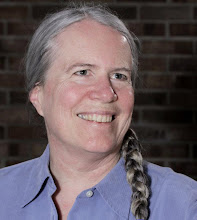authority
Alwin wrote a response to my article on diabetes in which he talks about how publishing is power, made accessible by the web. Meanwhile I'm preparing for a class on Oral History in which my students and I will talk about the authority of history versus how people construct their own stories. In class I am going to use a two-dimensional spectrum. One dimension is the between the public and the private--from public commemorations of historical events to our private theories of history. The other dimension is between history--a theory about the past--and memory. I hope that will come clear when I try to work through it.
I'm suggesting there is a common issue, which to put it onto one dimension would be a spectrum from authoritative knowledge to personal narrative. Let me talk about the particular kind of authoritative knowledge that is scientific (or what doctors call evidence-based medicine) for a minute and then I will come back to history. Professionals tend to think in terms of a spectrum in which the scientific is valid and the personal is not, but actually both kinds of knowledge are useful in different ways. My thinking is that there are two kinds of authority--scientific authority, which is hopefully based on good experimental results, and the authority of experience, which isn't statistically significant but can be useful in several ways. My example is that scientific authority says X is the best treatment for ADD, because in a carefully done study 60% of ADD kids benefited more from X and 40% benefited more from Y. But what if my son is one of the kids who benefited more from Y? I find the experience of other people often more useful than what doctors say not only because the doctors may be wrong, but also because when I read other people's experience I have a better chance of finding the approach that will work for my unique situation (physically sometimes, but particularly psychologically), which often isn't the standard approach.
My oral history reading suggests that it isn't enough to talk about authoritative or scientific knowledge vs. individual experience, precisely because people use theories they get from the larger culture to think about their own individual experience. I told my diabetes story as a story of gaining a personal sense of control, an organizing principle that wouldn't come naturally to someone from a less elite background. Publishing may be power, but our voices are heard by particular audiences if we structure our stories in certain ways.
There is more there, but I can't quite get the pieces to come together. I hope that I do better when I have the energy of teaching.


No comments:
Post a Comment